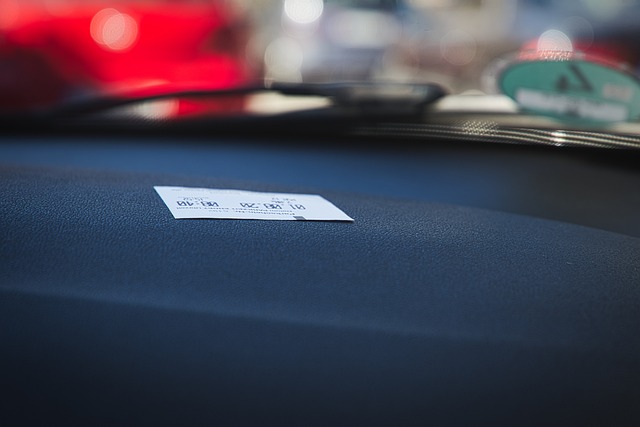How can One Apply for a Donated Car - A Quick Guide
Navigating the world of vehicle donation programs can provide essential transportation for individuals and families facing financial hardship. These programs, operated by various charitable organizations and nonprofits, offer pre-owned vehicles to qualified applicants who demonstrate genuine need and meet specific eligibility criteria. Understanding the application process, requirements, and associated costs helps potential recipients make informed decisions about pursuing this valuable assistance option.

Vehicle donation programs serve as vital resources for individuals and families who need reliable transportation but cannot afford to purchase a car. These initiatives connect generous donors with recipients who meet established criteria, creating opportunities for improved mobility and access to employment, healthcare, and essential services.
What Are Vehicle Donation Programs and Who Qualifies?
Vehicle donation programs are charitable initiatives where individuals donate their used cars to nonprofit organizations, which then distribute these vehicles to qualifying recipients. Most programs target low-income individuals, single parents, veterans, disabled individuals, and families transitioning from homelessness or domestic violence situations.
Eligibility requirements typically include proof of income below certain thresholds, valid driver’s license, current auto insurance, and demonstrated need for transportation. Some programs prioritize applicants who are employed or actively seeking employment, students attending school, or individuals with medical appointments requiring regular transportation.
How to Find Legitimate Vehicle Donation Programs
Researching reputable programs requires careful verification of organizational credentials and track records. Start by checking with local social service agencies, churches, and community centers that often partner with or operate vehicle donation initiatives. The Better Business Bureau and charity rating websites provide valuable information about program legitimacy and financial transparency.
Nationwide organizations like Goodwill, The Salvation Army, and Vehicles for Change operate established programs across multiple states. Local nonprofits may offer more personalized assistance but require thorough vetting to ensure legitimacy and proper vehicle maintenance standards.
Step-by-Step Application Process for Vehicle Programs
The application process typically begins with completing detailed paperwork that includes personal information, financial documentation, and essays explaining transportation needs. Applicants must provide proof of income, employment status, residency, and insurance coverage capability.
Most programs require in-person interviews where applicants discuss their circumstances and demonstrate understanding of vehicle maintenance responsibilities. Background checks and driving record reviews are standard procedures. Wait times vary significantly, ranging from several weeks to over a year depending on program demand and vehicle availability.
Understanding the Costs Associated with Vehicle Programs
While vehicles are donated free of charge, recipients typically face several associated expenses. Registration fees, title transfer costs, and immediate maintenance needs can range from $200 to $800 initially. Monthly expenses include insurance premiums, which vary by location and driving history but typically cost $100 to $300 monthly for basic coverage.
Some programs offer additional support for initial costs, while others require recipients to demonstrate ability to handle ongoing expenses before vehicle transfer. Understanding these financial obligations prevents unexpected hardship after receiving assistance.
| Program Type | Provider Example | Initial Costs | Monthly Expenses |
|---|---|---|---|
| National Nonprofit | Goodwill Industries | $300-600 | $150-250 |
| Local Church Program | Various Congregations | $200-500 | $120-200 |
| Veterans Organization | DAV Transportation | $250-550 | $140-230 |
| Community Foundation | Local United Way | $350-700 | $160-280 |
Prices, rates, or cost estimates mentioned in this article are based on the latest available information but may change over time. Independent research is advised before making financial decisions.
Comparing Major Vehicle Donation Programs and Their Requirements
Different programs serve distinct populations with varying qualification criteria and application processes. National organizations often have standardized requirements but longer wait times, while local programs may offer faster processing with more flexible criteria but limited vehicle availability.
Veterans-focused programs typically require military service documentation and may prioritize disabled veterans or those facing employment challenges. Family-oriented programs often emphasize households with children and may require participation in financial literacy or job training programs as conditions of assistance.
Program comparison involves evaluating wait times, vehicle quality standards, ongoing support services, and geographic coverage. Some organizations provide mechanical inspections and limited warranties, while others transfer vehicles as-is with minimal guarantees.
Successful applicants often report that persistence and thorough preparation significantly improve approval chances. Maintaining accurate documentation, following up appropriately, and demonstrating genuine commitment to program requirements helps distinguish serious candidates from casual inquirers. Understanding that these programs operate with limited resources and high demand helps set realistic expectations throughout the application process.




